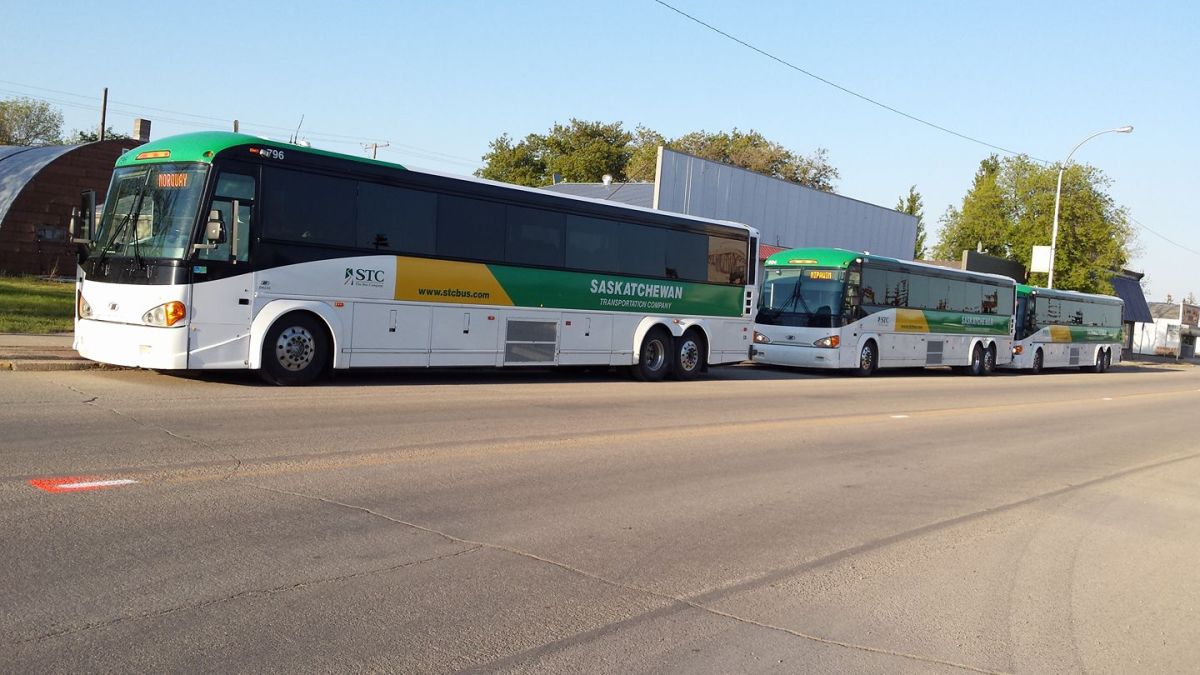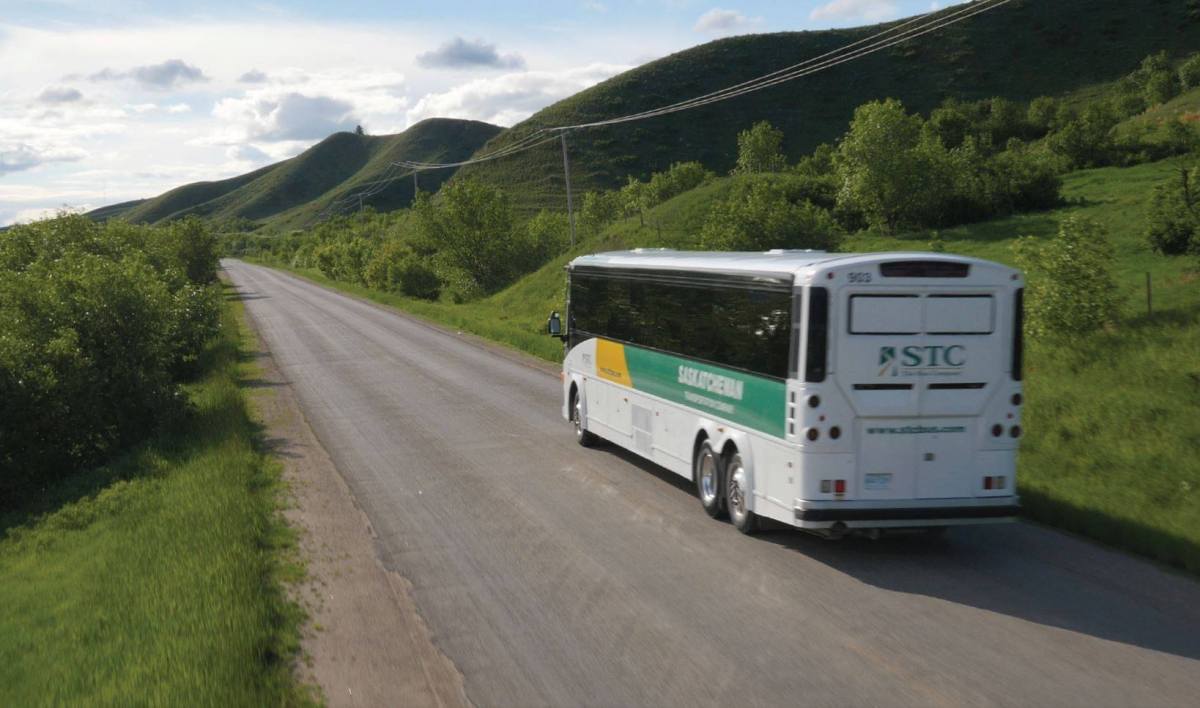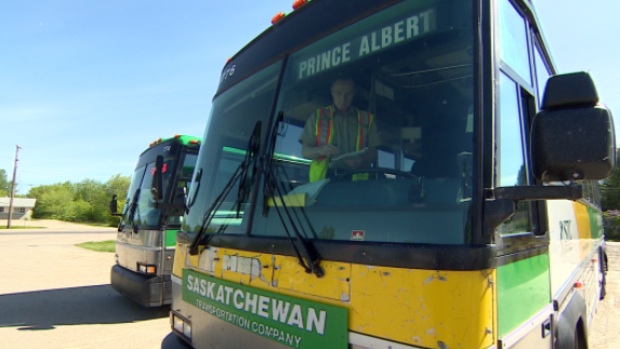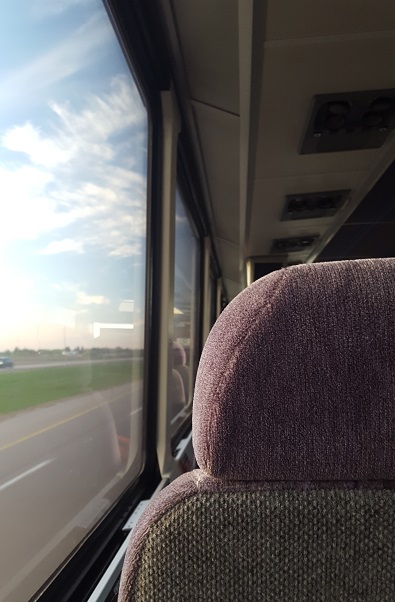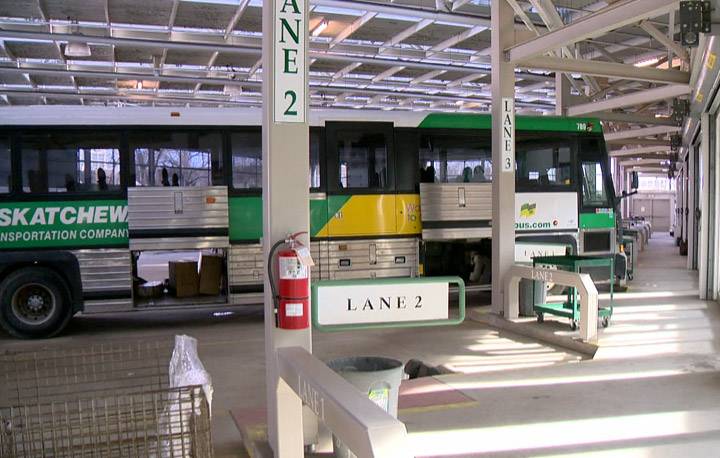“STC connected Saskatchewan and now those connections are broken.”
** The photo was taken in downtown Watson, Saskatchewan. Watson was a major transfer point for freight and passengers with three busses twice a day. **
Recently Saskatchewan people were asked to share what the loss of STC means to the people of our province. Here are just a few responses.
“Losing STC is for me a big loss because I can not see my friends and family that used to visit me on a regular basis ……..they came on the bus and went home on the bus……… we would see each other 3 or 4 times a year for a few days now we talk on the phone but that is not the same I so miss the visits and as we get older this is so important I do not know when or if I will ever be able to see them again.”
“I’m angry about the scrapping of what my parents & grandparents built up over their lifetimes, and used quite often. And also that my aunt (from BC, visiting in Lloydminster) & I couldn’t affordably or feasibly go visit my other aunt in Regina last fall. The aunt in Regina passed away a few months after we would have gone. Also angry at the underhanded way STC was dismantled, instead of trying to make it work better. We could have used it to reduce our carbon footprint, as well.”
“Losing the STC is the biggest loss for me. It feels like I’ve lost my independence. Now I just feel like I’m a prisoner trapped in my own city. I now have to rely on friends, family or my husband to go see my other family. I got married last summer and so I had to meet my mom in Davidson to go the rest of the way to Saskatoon then to come back to Regina. I met my (fiancé at the time) in Davidson. I don’t drive so that’s why I used STC. I have developed a few great relationships with some of the drivers. These drivers became like family to me.”
“I was the last operator (bus driver) to have the route between Regina and Moose Jaw every weekday morning for Sask. Poly (SIAST). I know fully what that service meant to the many students of all ages who commute with me everyday to get to school while only paying 300 per month for their passes. When they heard about the closure they were all disappointed and worried about what their future would hold in order to afford to continue their education. I hope they found another means of transportation and were able to complete their educations.”
“Losing STC for me meant to lose the possibility of teaching in La Ronge, but for many, many of my former students means “to have to pray” that someone is going to PA or Saskatoon and the difficulties to go back on time. No way of visiting the hospitals where they (have) relatives, etc. Working together meant to recover the sense of community in the city and the sense of possibility, connection, autonomy, and faith in the province.”
“For me, the STC was a safe, comfortable trip to Saskatoon to visit family and do some shopping. We also thought we could rely on it to get to medical appointments in the city, if needed. This has been a long winter with poor road conditions and it has been hard for those who are not confident drivers or don’t drive at all.”
“STC was how I got to my clients anywhere and everywhere in Saskatchewan. I am a pet/home sitter.”
“STC connected Saskatchewan and now those connections are broken. My Mom is a senior who lives in rural Sask. and she used STC to travel back and forth to the city. It was an affordable, safe and comfortable way for her to travel. Many seniors do not drive on the highway and now they are stuck.”
“So many wonderful trips across the prairie enjoying honest and true conversations with strangers. I had a longtime dream to do a mobile artist residency on STC. A potential artist residency is a small thing to lose, but it’s still so sad.”
“For me, the loss of STC has meant isolation from my grown children and grandchildren and this is after having moved 2000 miles to get here to be closer to them. It has meant increased worry about one son who has severe problems and who we now can no longer get to us quickly when he needs us; real worry for his life in sub-zero temperatures when he is on the streets. Before we lost the STC, we had used it to get him back and forth several times when he would be willing. It has also meant increased dependence on others to get to the city for mandated annual cancer screening. Following the SAVE STC group, on the other hand, has allowed me to know that I am not alone, that there is a place that my voice, joined with others, can be heard, that I have agency and that there may be hope that we can make a difference.”
“As an immigrant to Canada, I was raised with a fierce sense of pride in Saskatchewan: my beloved province, home of medicare, land of loving, caring people who know the true meaning of neighbourliness and co-operation. I have been this province’s greatest advocate for sixty years. It is terribly sad that as a result of the (government’s) ideology, I have lost that pride.”
“I just don’t understand how a group of people can think destroying a mass transit system is good for any society. Around the world countries, provinces, states territories have a mass transit system. In Saskatchewan we have chosen cars and trucks over mass transit. Europe is so advanced in their rail system. Canada in land mass is huge comparing to our European friends and family. We have a limited expensive rail system and in Sask. we have no bus to travel our province. I have partial sight due to macular degeneration. I don’t or will not drive, I cannot leave Saskatoon unless someone will drive. I feel like Sask. society is again saying “WELL IT DOESN’T AFFECT ME, SO WHY WOULD I CARE”.”
“Losing the STC has been brutal for me too. I used this bus through my whole life and we retired back in small town Sk. thinking I could take the bus into the city any time. I have my driver’s license, but would not want to drive in the city.”
“Now that my sight is only partial, I cannot leave Saskatoon, unless someone drives , as I currently will not drive. I will not be contributing to tourism dollars in Sask. I will fly to another province or country, for vacations. I cannot go on my own to visit family or friends in another community , because (the government) decided to cancel our mass transit system.”
Shared here with permission.

